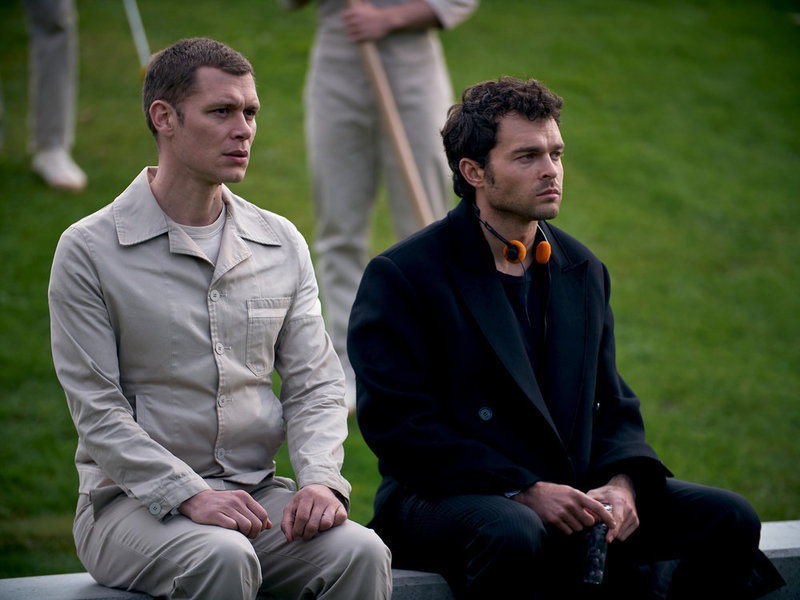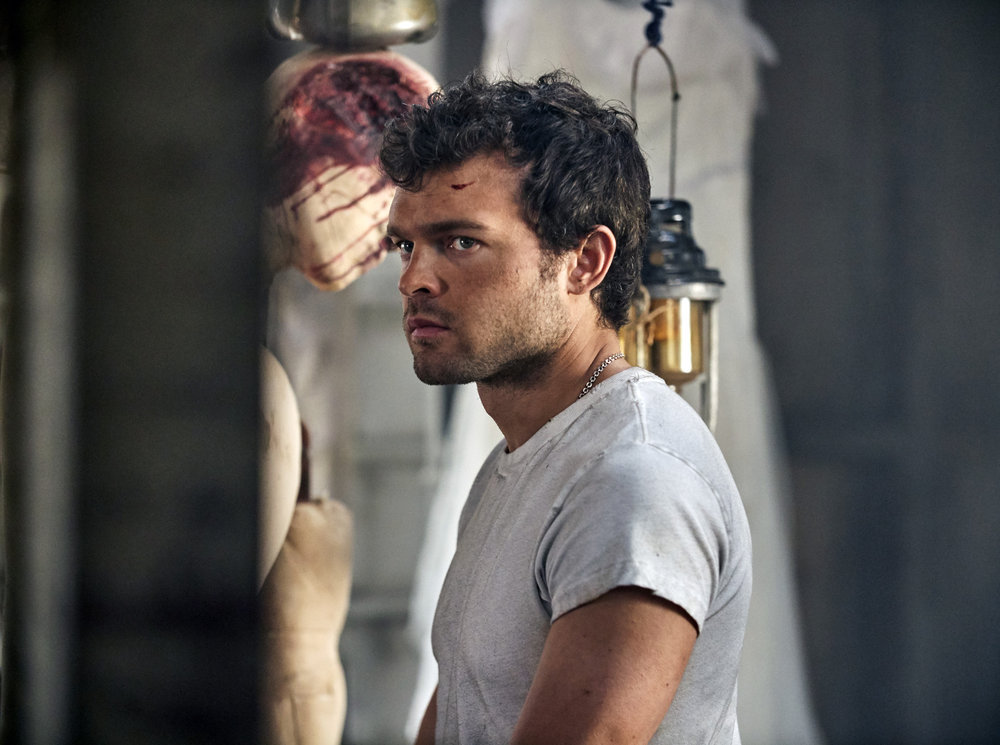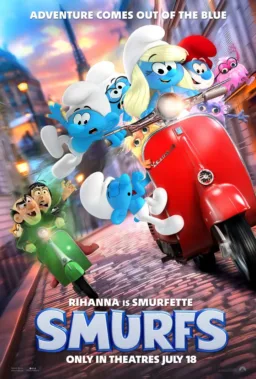Aldous Huxley was onto something when he devised the civilization of New London in Brave New World, an existence recreated with care by NBC’s new streaming service Peacock in all of its drug-addicted, stimulating, non-monogamous glory. The gist of this civilization is that people are pacified by a drug called Soma, which quells urges both good and bad, and keeps people in line while taking away their privacy, family, and agency. The best part is that no Big Brother is needed; the master everyone serves is peaceful conformity, which is the price they pay for not having a soul. If you’re of a certain rating (like Alpha or Beta), it’s like spring break all the time, and if you’re not, you’re still too drugged up to hate your custodial job anyway.
This is, of course, a bad idea for human beings, meant to reflect our most indulgent fantasies as in a place like HBO’s “Westworld,” of which “Brave New World” is clearly trying to take after. But like the most plodding of dystopian sagas, NBC’s adaptation of Huxley’s “Brave New World” spends an overwhelming amount of time simply proving why New London is counterintuitive, basing its most revelatory moments on rote notions of free will. In a way that makes all of it even more frustrating, this adaptation looks great but is definitively hollow, and in turn all of its parties, extensive discussions, and choreographed orgy scenes become simply exhausting.
“Brave New World” starts with great promise in its first episode. For a story that’s about the power of stimulation, and how it can overwhelm to the point of control, it has plenty—bright costumes within a minimalist color palette, and a slick blend of real concrete architecture with green-screen vistas that give a bright image of New London. It establishes a society where such lack of conflict is disturbing, but where the jumping death of a clone causes quite a stir because no one seems to have done that before, and where a monogamy is an offense punishable by being sent to have sex with someone else.

But there are bigger issues just minutes away from New London via shuttle im The Savage Lands (based in America), a place where humans aren’t popping Soma as if they were Tic Tacs, and where they do have families, monogamy, guns, and other things. As “Brave New World” often does, it introduces this place with a snazzy, in-your-face commercial, emphasizing how much this home for people like John (Alden Ehrenreich) is just Disney’s Animal Kingdom for others. People from New London come there to watch grotesque theater productions of his real life—John is a prop master, a “washer of cars,” a cog inside a machine, which is itself inside an even bigger machine. When episode one soars with with the climax of “Fake Plastic Trees” by Radiohead it hits in a way that “Brave New World” rarely does after, in part because its own constant urges for nothing less than emotional grandiosity wears the viewer out.
A rebellion makes its way to the Savage Lands, and visitors from New London, Bernard (Harry Lloyd) and Lenina (Jessica Brown Findlay), are nearly killed. In another burst of creative energy, the tension between the two worlds snaps during an explosive scene that’s shot in one-take, rushing from different things, tossing Bernard and Lenina into a reality filled with acts of savagery they can’t comprehend. In these frantic scenes, it’s a thrilling survival story, as they try to get to the border with the help of John’s mother Linda (Demi Moore).

All of this is just act one—by episode four, John is an outsider in New London, and by either letting himself be seduced by its way of life or resisting it, he’s going to mess it up. This is where Peacock’s “Westworld” aspirations kick in, and soon fall short. There is a grave lack of stakes for this world where no villain is outright visible, and the revolution rarely feels like this much of a slog. With John serving as our surrogate, “Brave New World” becomes an arch dissection of this particular society, stating the obvious with either exposition about how this place functions, or during more philosophical conversations about why we as humans can’t imprison our feelings. It’s stuffy and far too self-serious, and if you’ve seen nearly any dystopian tale before, especially ones specifically meant to be eye-opening for young adults, awfully familiar.
And because “Brave New World” is a nine-episode miniseries at approximately 45 minutes each, we have to see John’s influence move slowly throughout New London, on a microscopic level, and how it shakes up Lenina and the especially uptight Bernard. The story tries to spike its interest during these with its showier tricks—here’s another massive party with a lush techno score, or a zippy commercial, or a sequence built around Lou Reed’s “Perfect Day”—but as much as the series can sometimes perk up, it fades fast. “Brave New World” gets even worse when it lands on a love triangle between Lenina, Bernard, and John, in which everyone’s core desire to not have to share a sexual partner takes the show full circle back to intentionally over-baked fare you’d see in the Savage Lands.
The sad thing is that nearly everything works about this production except its storytelling. These are bold performances, their emotional style no flatter than necessary for people who are nonetheless addicted to a pacifying drug, and very British. Brown-Findlay slowly carves a sense of self for Lenina, sharing a few charged scenes (including a tennis match) with her friend Frannie (Kylie Bunbury), all related to their warped, tenuous existence. The most standout performance might come from Nina Sosanya, who plays Mustafa, a leader (of sorts) within this society who goes behind the curtain to interact with its true deciding forces. Like many others, Sosanya treats these monotone ideas as if they were incredibly bold, and it won’t be her emotional investment that leaves you cold.

And then Ehrenreich gets dropped in there, with a fervor that rings like early Mel Gibson, and is in more ways than one a potent opposite force to such composed New Londoners. Ehrenreich proves yet again why he took on the unenviable Elvis impersonator gig that was “Solo: A Star Wars Story,” but also why he shouldn’t be sold short. He does better when given more direction than “just scream ‘Mom!’”, or to brood as the one guy wearing a dark coat among a sea of placated white clothing, but he’s good at all that, too.
You can easily imagine how the makers of “Brave New World” all had it together on set, scene by scene, and that it felt like the project was supposed to—monumentally emotional, profound, and meaningful. Equally so, you can imagine some extremely bored people in the editing room, absolutely baffled on how to make its drama any less than obvious, without just cutting it down to two hours.
Whole season screened for review. “Brave New World” premieres today on Peacock.












